Adrenal Fatigue: a myth or a fact?
The term has been used by doctors, healthcare providers, and the general media to describe an alleged condition caused by chronic exposure to stressful situations. Despite this, adrenal fatigue has not been recognized by any Endocrinology society, who claim there is no hard evidence for the existence.
A new systematic review tried to verify whether there is substantiation for "adrenal fatigue” using 58 studies . A systematic review is the highest level of evidence a study can have, and analyses all the research in the area to find the answer.
This systematic review found that there is no proof or demonstration of the existence of “adrenal fatigue”. While a significant number of the reported studies showed differences between the healthy and fatigued groups, important methodological issues and confounding factors were apparent.
The authors concluded that due to the lack of substantiation that “adrenal fatigue” is an actual medical condition, is should therefore be considered as a myth.
Reference: https://www.ncbi.nlm.nih.gov/pmc/articles/PMC4997656/
Main findings of a scientific journal article looking at health benefits of coffee found that coffee intake could be good for you, it was associated with decreased mortality from cardiovascular and neurological diseases, diabetes type II, as well as from endometrial and liver cancer.
From the 2017 research paper it was found that:
- Consumption has an immunomodulatory action and is postulated to induce an anti-inflammatory state.
- Consumption may exert a protective role against multiple sclerosis, primary sclerosing cholangitis, and ulcerative colitis.
- MS patients could benefit from coffee consumption due to its role in mitigating disease progression.
- Hashimoto’s disease patient on levothyroxine supplementation therapy should avoid concomitant coffee consumption due to the possible impact on drug absorption.
- It might be advantageous for RA patients treated with methotrexate to avoid coffee consumption because of its postulated impact on drug efficacy.
- Celiac patients who have clinical symptoms albeit adhering to a gluten-free diet may improve after replacing their coffee preparations with blends characterized by lower reactivity with anti-gliadin peptide, for example espresso. [i.e. Real coffee not instant products]
story credit
https://www.facebook.com/EMsportscience/?hc_ref=PAGES_TIMELINE&fref=nf
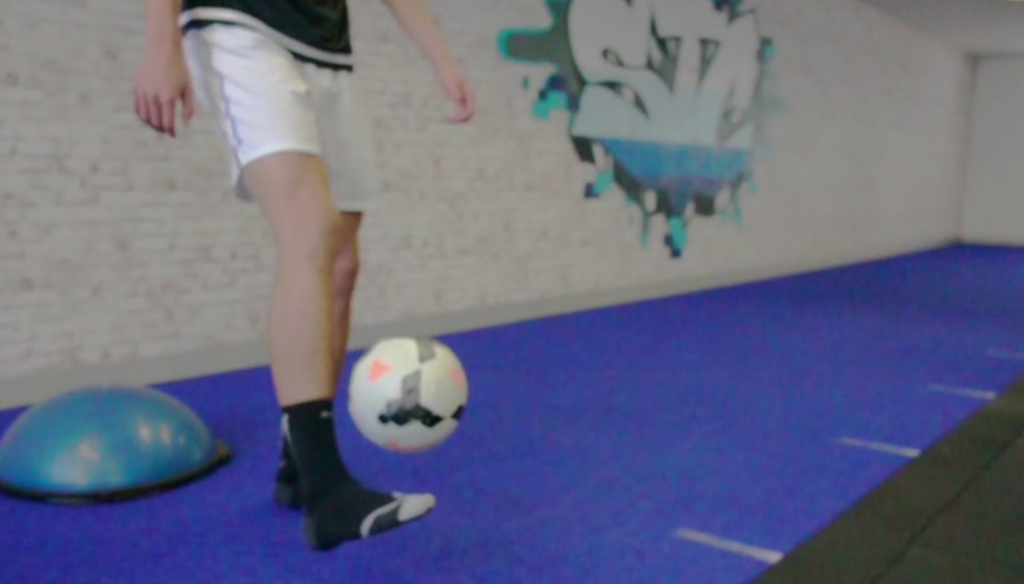
Blaise is a striker at CUA and was unfortunate to have a severe dislocation that required surgery. It has been a long road for him but he has come through. He shared some of his experience for us:
'In October 2016 I suffered a dislocated knee cap while playing football, causing damage to the cartilage in my knee. As a result I was forced to undergo knee surgery which would put me out of action for at least 4 months. The timing of my injury made it especially disappointing for me as the football nationals were only 2 months away.
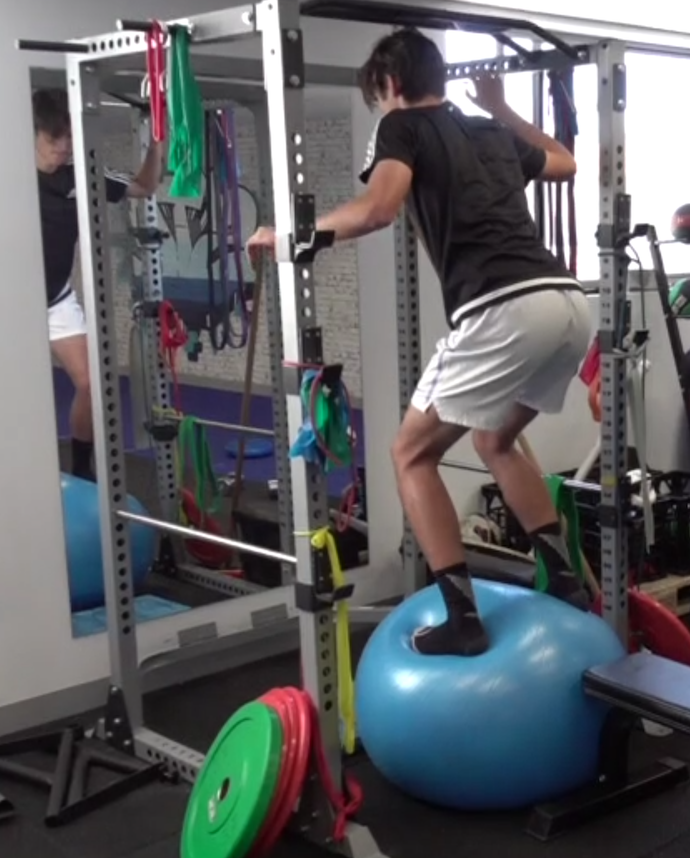 In November, almost immediately after my surgery, I began visiting Ryan at STC. After a few physio sessions I was recommended a rehab program run by Oli to speed up my recovery process. I was given exercises that helped me to not only strengthen my injured leg but other muscles necessary for football. By completing these exercises under the guidance of Oli, I went from struggling to walk without pain to being able play football pain free again.
In November, almost immediately after my surgery, I began visiting Ryan at STC. After a few physio sessions I was recommended a rehab program run by Oli to speed up my recovery process. I was given exercises that helped me to not only strengthen my injured leg but other muscles necessary for football. By completing these exercises under the guidance of Oli, I went from struggling to walk without pain to being able play football pain free again.
It has been a very long process for me, but after around 6 months of rehab at SportsTec I have regained complete confidence in the durability of my knee. This experience has given me a deeper appreciation for the simple joy of being active and playing sport. I feel like I am returning to football physically and mentally stronger overall than I was before my injury. Without the help of the rehab program I would still be unable to play today and for that I am extremely thankful to Oli and the physios at STC who helped with the recovery process.'
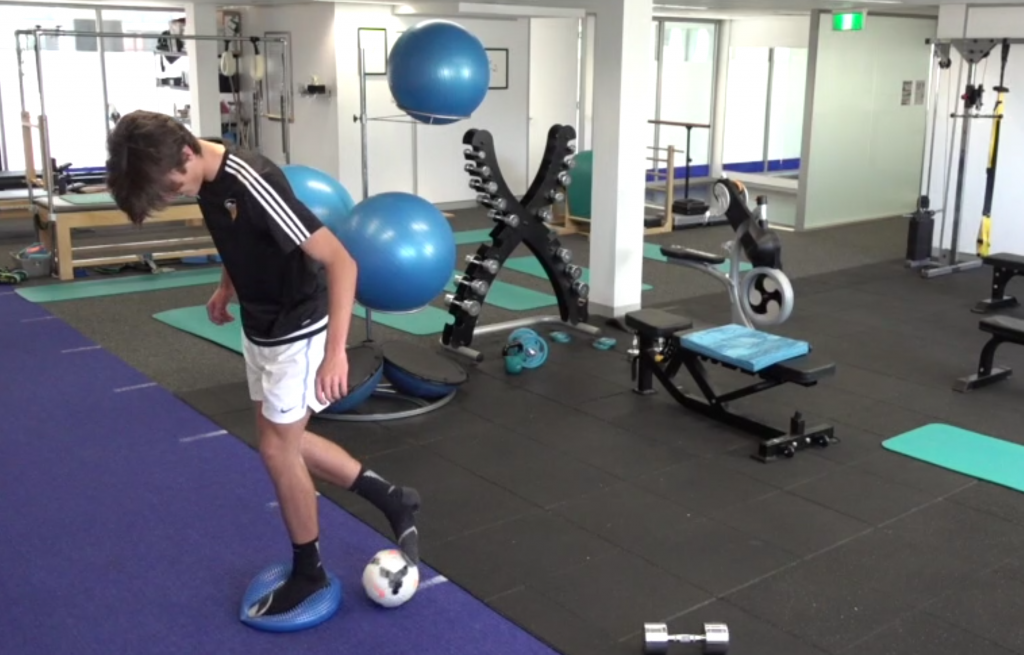
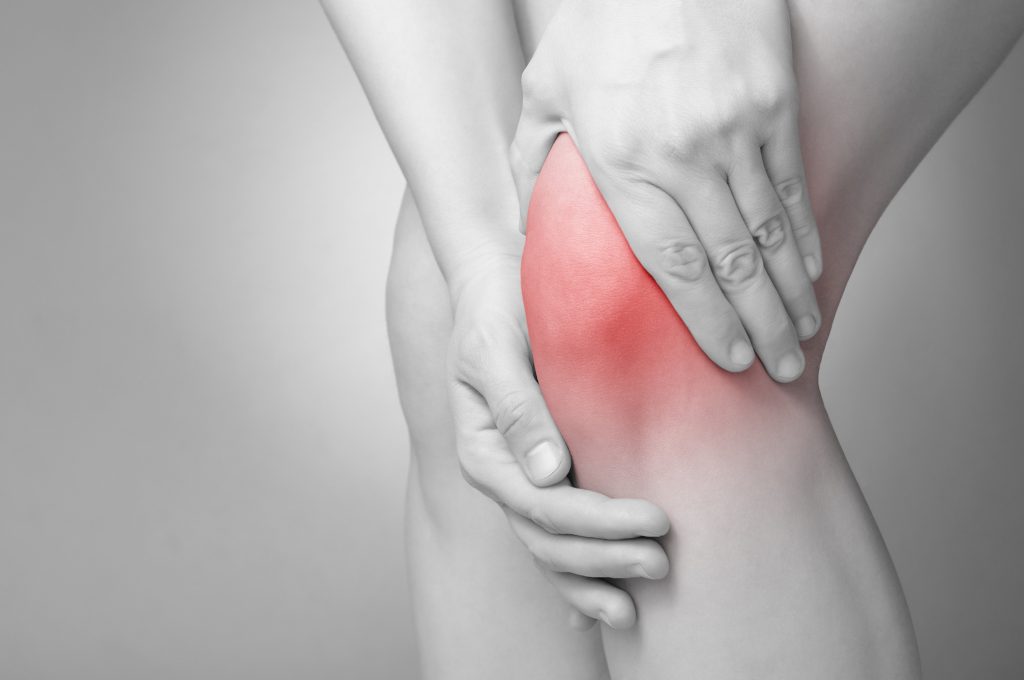 Knee pain can put a downer on your everyday life and makes you realise how much you use your knees; getting in and out of the car, going up stairs and if you love to exercise, knee pain can really ruin your day!
Knee pain can put a downer on your everyday life and makes you realise how much you use your knees; getting in and out of the car, going up stairs and if you love to exercise, knee pain can really ruin your day!
How do you fix knee pain? It depends on the reason for the knee pain in the first place. Let’s talk about a very common form of knee pain patella femoral pain syndrome (PFPS)
If you, or someone you know, have suddenly increased or started exercise and have gotten pain in the front of the knee, it is possible you have PFPS. What can you do to manage this?
Well first of all make sure that you stop or reduce the activities that irritated the knee in the first place.
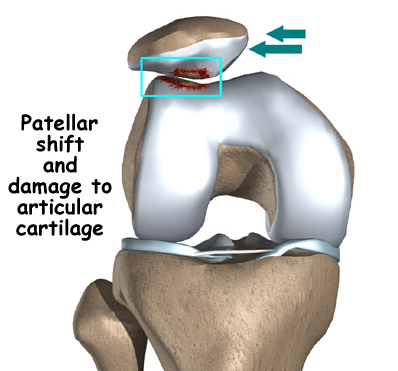 Then we can start to address a common cause of PFPS- imbalance of muscles. Often the lateral quadriceps muscle (VL) gets overly tight pulling the knee cap side ways, causing it to rub against the bone underneath (it sits in a track).
Then we can start to address a common cause of PFPS- imbalance of muscles. Often the lateral quadriceps muscle (VL) gets overly tight pulling the knee cap side ways, causing it to rub against the bone underneath (it sits in a track).
This is often compounded by a week medial quadriceps who’s job it is to counter the pull of the VL (perhaps you have heard of the VMO?). The VMO actually switches off and gets smaller when you get ongoing knee pain, making the problem worse as the knee cap is pulled further to the side out of the grove, causing more friction and pain.
What are some simple exercises that can help? To start off with you could roll the VL out with a foam roller or do one of the quad stretches shown here. Roll out ten to twenty times per day.
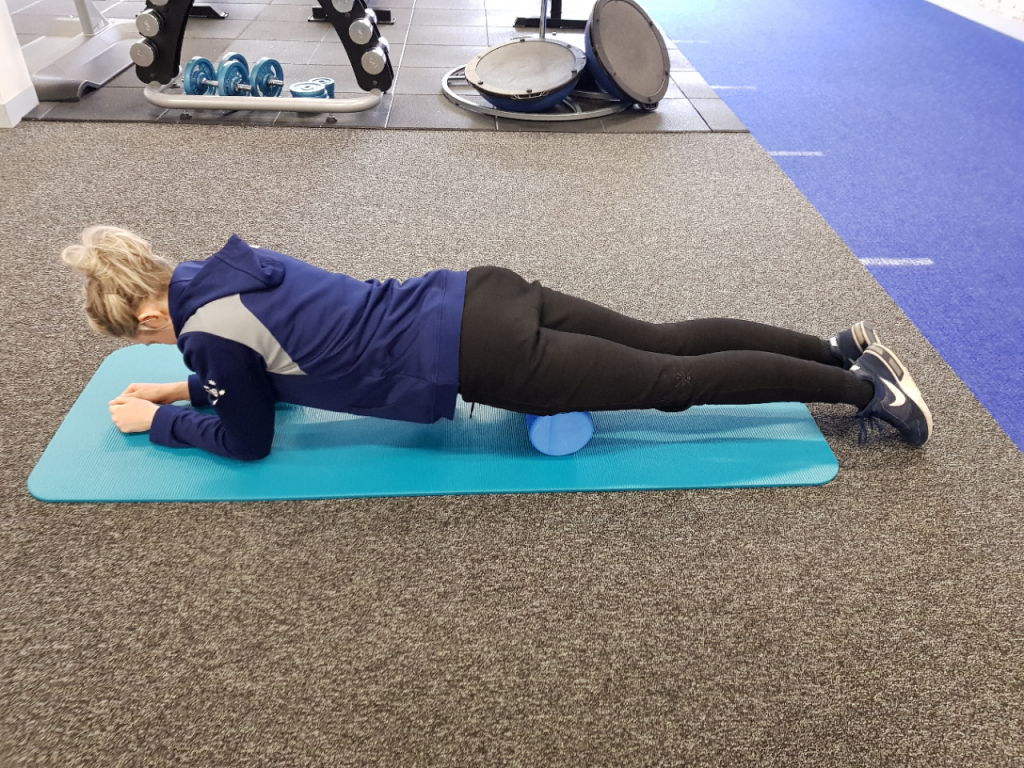
You can also stretch the VL by doing this stretch below. Hold for 30 seconds repeat both sides two times. You can do this two or three times per day.
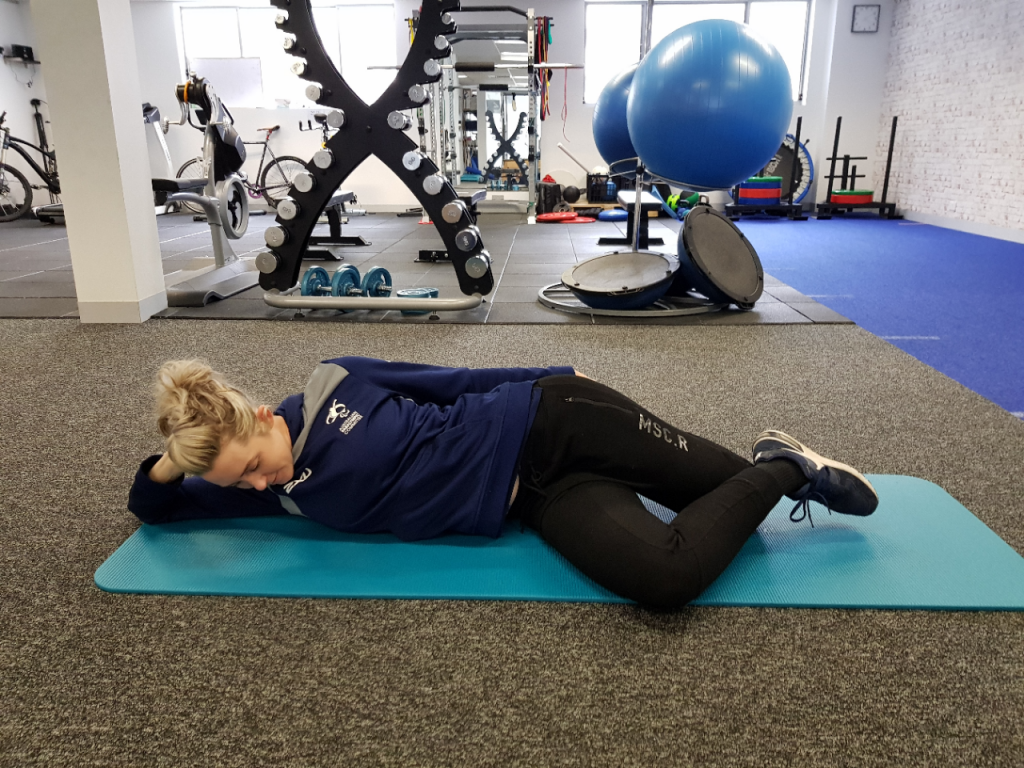 This will be a good start to reducing the pain, but it will not address the original cause of the problem. This is a biomechanical injury and often arises from a problem elsewhere in the body; for example you might have a collapsing foot on that side that causes the knee to roll in, or the glute muscles are weak causing the hip and knee to collapse in.
This will be a good start to reducing the pain, but it will not address the original cause of the problem. This is a biomechanical injury and often arises from a problem elsewhere in the body; for example you might have a collapsing foot on that side that causes the knee to roll in, or the glute muscles are weak causing the hip and knee to collapse in.
Finding the cause of the injury will be key, so seeing a physio find the issue will be very important to resolve the injury. This condition resolves with the right management and understanding why your knee pain has come on will be important to make sure it stays well managed going forwards.